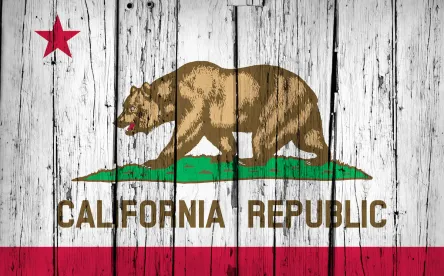Although California law does not require that employers provide bereavement leave for employees, most employers provide the benefit as a form of unpaid leave, typically for up to five working days. Recently, Assembly Bill (AB) 2999 was introduced to mandate bereavement leave as a new form of protective leave in California.
What Would AB 2999 Require?
The bill would require employers in California to provide employees with “up to 10 business days of unpaid bereavement leave,” and to refrain from interfering with or restraining employees from taking such leave. The days of leave would not need to be consecutive; however, the leave must be completed within three months following the death of a spouse, child, parent, sibling, grandparent, grandchild, or domestic partner.
Under the current draft, AB 2999 would apply to all employers, regardless of size. The bill also covers all employees, as there are no accrual requirements. However, the bill would not apply to an employee covered by a valid collective bargaining agreement if the agreement expressly provides (a) for bereavement leave; (b) for the wages, hours of work, and working conditions of the employees; (c) premium wage rates for all overtime hours worked; and (d) base pay of not less than 30 percent more than the state minimum wage.
The bill references California Labor Code Section 230.8 to define “parent” as a “parent, guardian, stepparent, foster parent, or grandparent of, or a person who stands in loco parentis to, a child.” The definition of a “child” includes any “biological, adopted, or foster child, a stepchild, a legal ward, a child of a domestic partner, or a child of a person standing in loco parentis,” regardless of age. Under the bill, “sibling” is defined as “a person related to another person by blood, adoption, or affinity through a common legal or biological parent.”
The bill also provides that an employer may require employees to provide documentation of the death of the person, including “a death certificate, a published obituary, or written verification of death, burial, or memorial services from a mortuary, funeral home, burial society, crematorium, religious institution, or governmental agency.”
Any employee who is discharged, disciplined, or discriminated against for exercising his or her right to bereavement leave under the bill may file a complaint with the California Department of Industrial Relation’s Division of Labor Standards Enforcement or file a civil action against his or her employer for reinstatement, actual damages, and attorneys’ fees.
Would the Leave Be Paid or Unpaid?
If an employer has a current policy that provides for paid bereavement leave, AB 2999 is not intended to replace that employee benefit. However, if the employer does not have an existing bereavement leave policy, then the bill would provide for unpaid leave, “except that an employee may use vacation, personal leave, or compensatory time off that is otherwise available to the employee.”
What Is the Status of AB 2999?
Due to the pandemic, AB 2999 remains in committee, but the amendment process has recently commenced. Potential amendments might include an effort to exclude small businesses from the new mandate, and require employees to have a certain period of employment before qualifying for the leave.
What Is the Takeaway?
In this year of the COVID-19 pandemic, one can surmise that there is a potential for a groundswell of support for this new form of protected leave. If the bill becomes law without significant amendment, then employers may consider the following:
-
Draft a bereavement leave policy that notifies employees of the new protected leave, including the required documentation for the leave in the acceptable forms stated in the bill.
-
Draft a request form and formal procedure to enable employees to request bereavement leave.
-
Train managers and supervisors on the new protected leave to ensure that they do not fail to grant a proper request for bereavement leave, or interfere with or restrain an employee from taking the leave.
-
Train leave specialists to ensure that they properly administer the leave, including documentation showing that the leave was properly granted and tracking the progress of the leave through the three-month period when the employee can take days of bereavement leave on a consecutive or nonconsecutive basis.
-
Many employers have risk assessment checklists before they make termination decisions, and those checklists usually indicate all potential protected activity by the employee in the prior year before the termination decision is finalized. Employers may consider adding bereavement leave as a form of protected activity to consider before proceeding with a termination of an employee for poor performance reasons.





 />i
/>i

